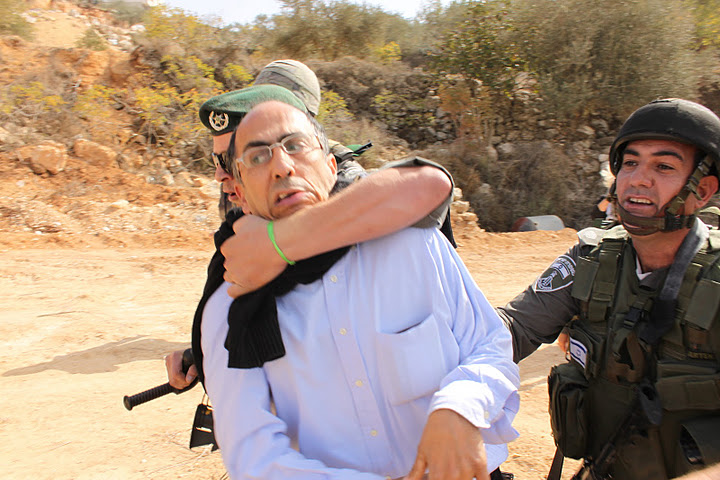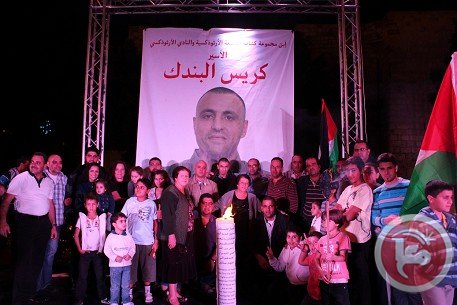Month: November 2011
-
Jerusalem: Explosions, arrests and violence as Israel clears way for settlement activity
by Alistair George 13 November 2011 | International Solidarity Movement, West Bank Three Palestinians were arrested and others were detained, beaten and pepper sprayed by the Israeli military in Al-Walajeh yesterday, as villagers attempted to prevent the detonation of explosives used to widen the route for the separation wall on the village’s land. Previously, large…
-
Palestinian woman struggles for proper medical treatment
by Wahed Rejol 14 November 2011 | International Solidarity Movement, West Bank In 2004 Amal Jamal was sentenced to 12 years in Israeli prison. A year later the Palestinian woman from Nablus was diagnosed with ovarian cancer. Today from a hospital in Nablus she awaits a decision from Israel authorities that will determine whether she…
-
“Only one half of me is free, but the other half is still there, locked up behind Israeli bars”
by Shahd Abusalama 13 November 2011 | Palestine from My Eyes In a nice restaurant overlooking Gaza’s beach, beneath a full moon with a beautiful halo surrounding it, I sat with my new friends who recently were released from Israeli prisons. Their freedom was restricted by Israel’s inhumane rules, including indefinitely deportation from the West…



